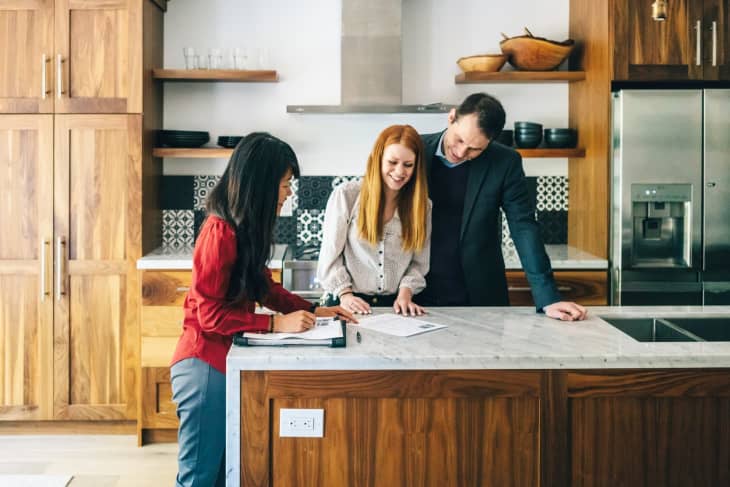The Home-Buying Advice One Real Estate Expert Wants You to Ignore Right Now

The Coronavirus pandemic and its ensuing protective measures have had an enormous impact on day-to-day life. Home life has, of course, been shaken up as homes turn into offices, schools, and gyms. All that change is affecting how people buy and sell our homes, too, and often in surprising ways.
Now that the world is remarkably different compared to four months ago, it can be hard to know what market insights still hold true. Amanda Pendleton, a home trends expert with Zillow, explains the real estate site has already seen some long-held selling advice turned on its head. Things you might expect (like a recession being a great time to bargain hunt) aren’t proving true at all. Here are five pieces of home-buying advice Pendleton says you can completely ignore right now.
Empty homes don’t show well
Staging a home is often seen as an indispensable step in getting it to sell (and may even be a way to increase the final selling price). But these days, empty houses actually may have more appeal. Zillow found in a recent survey that 55 percent of adults are less comfortable entering an occupied house. While empty houses require more imagination, they also offer advantages and flexibility, explains Pendleton. “Vacant homes also make it easier for inspectors and appraisers to do their jobs safely right now,” she says.
You need to tour a home in person before buying
There’s a lot you can’t tell about a house until you see it in person. But with the pandemic, agents and homebuyers are relying on digital tools. Shina Alade, a professor at Michigan State University, made an offer on her home with her partner before seeing it in person earlier this spring.
“We had a limited time to search before we had to tell our landlords whether or not we were leaving,” she explains. They were able to find a house that seemed to fit all their criteria and was well-priced for the area, so they ultimately decided it was “worth jumping through all the hoops.”
While eased restrictions in many states are making in-person tours easier, there are certainly many reasons a buyer or renter could choose to go Alade’s route. If the move is geographically distant, for example, trips back and forth to view homes might not be feasible. Realtors are relying on existing tools, like Zillow’s 3D home tours and video tours, more than ever. If you are touring remotely, just make sure that you ask questions about the things you might check in person and see if someone, like the real estate agent, can show you those details over a video call.
It’s not a good time to buy
With so much uncertainty in the economy, it can seem wise to shy away from making a major purchase. But Pendleton points out that mortgage interest rates are at historic lows, making it a potentially good time to buy a house if you have very secure income or assets. The low interest rates you’ll receive on a fixed rate mortgage could save you a lot of money in the long run.
For those on the hunt, Luke Schrader, a realtor in Missouri, recommends getting pre-approved for a mortgage before touring. As Alade found, now more than ever, sellers only want to show their houses to serious buyers and have less patience for “window shopping.”
It’s a great time to go bargain hunting
This one seems like a no-brainer, right? If people are hesitant to buy a house right now, surely there have to be loads of great deals waiting to be snatched up. Unfortunately, the numbers don’t reflect this. According to Zillow’s weekly market report, prices are actually climbing—and are expected to continue to climb. The reason? There’s limited inventory and little reason to sell houses for less. When demand is high and supply is low, prices remain high.
Buyers want open concept floor plans
Open-concept layouts are everywhere these days, but with more people working and learning at home, we may be longing for more walls. That’s another thing Pendleton says Zillow is learning. In a recent survey, they found two-thirds of Americans would consider moving if work from home was extended indefinitely at their company. While the long-term effects of social distancing are unknown, many experts are predicting a future where more and more people work from home permanently. If that’s the case, it could change what we want from a home. If your home is also your office and classroom, you’ll appreciate the extra privacy.